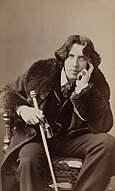Portal:Children's literature
The Children's Literature Portal
Children's literature or juvenile literature includes stories, books, magazines, and poems that are created for children. Modern children's literature is classified in two different ways: genre or the intended age of the reader, from picture books for the very young to young adult fiction.
Children's literature can be traced to traditional stories like fairy tales, which have only been identified as children's literature since the eighteenth century, and songs, part of a wider oral tradition, which adults shared with children before publishing existed. The development of early children's literature, before printing was invented, is difficult to trace. Even after printing became widespread, many classic "children's" tales were originally created for adults and later adapted for a younger audience. Since the fifteenth century much literature has been aimed specifically at children, often with a moral or religious message. Children's literature has been shaped by religious sources, like Puritan traditions, or by more philosophical and scientific standpoints with the influences of Charles Darwin and John Locke. The late nineteenth and early twentieth centuries are known as the "Golden Age of Children's Literature" because many classic children's books were published then. (Full article...)
Selected article
Selected picture

German alphabet book from 1830
In this month
- 2 April 1805 - Birth of Hans Christian Andersen (pictured), Danish author and poet, most famous for his fairy tales
- 8 April 1911 - Short film Little Nemo released, based on the comic strip
- 9 April 1768 – Death of Sarah Fielding, author of the first novel in English for children
- 12 April 1958 - Publication of Yertle the Turtle and Other Stories by Dr. Seuss
- 16 April 2002 - Chitty Chitty Bang Bang opens in the West End at the London Palladium theatre
Selected quote
WikiProjects
- Parent projects
- Literature • Books • Novels
- Main project
- Related projects
- Artemis Fowl • Discworld • Fablehaven • Harry Potter • Inheritance Cycle • Lemony Snicket • Redwall • Oz
What are WikiProjects?
Selected biography
Did you know...
- ...that the bestselling children's book The History of the Fairchild Family by Mary Martha Sherwood inspired the character of Pip in Charles Dickens's Great Expectations?
- ...that Lord of the Nutcracker Men was a 2001 children's novel about World War I?
- ...that the German children's series Bibi Blocksberg has been criticised because it can give a negative view of politics to children?
Featured content
Featured articles
 Chinua Achebe
Chinua Achebe Argosy (magazine)
Argosy (magazine) Bronwyn Bancroft
Bronwyn Bancroft Enid Blyton
Enid Blyton Chitty-Chitty-Bang-Bang
Chitty-Chitty-Bang-Bang The Coral Island
The Coral Island Gerald Durrell
Gerald Durrell Edmund Evans
Edmund Evans Ian Fleming
Ian Fleming The Fox and the Hound (novel)
The Fox and the Hound (novel) Anne Frank
Anne Frank The Guardian of Education
The Guardian of Education The Hunger Games (novel)
The Hunger Games (novel) Lad, A Dog
Lad, A Dog Ursula K. Le Guin
Ursula K. Le Guin Julianne Moore
Julianne Moore Baron Munchausen
Baron Munchausen The Phantom Tollbooth
The Phantom Tollbooth Proserpine (play)
Proserpine (play) Talbot Baines Reed
Talbot Baines Reed Sally Ride
Sally Ride J. K. Rowling
J. K. Rowling Scoops (magazine)
Scoops (magazine) Mary Martha Sherwood
Mary Martha Sherwood The Story of Miss Moppet
The Story of Miss Moppet To Kill a Mockingbird
To Kill a Mockingbird J. R. R. Tolkien
J. R. R. Tolkien When Megan Went Away
When Megan Went Away A Wizard of Earthsea
A Wizard of Earthsea Mary Wollstonecraft
Mary Wollstonecraft
Featured lists
Categories
Topics
Children's literature: Book talk • Children's literature criticism • Children's literature periodicals • International Children's Digital Library • Native Americans in children's literature
Young adult literature: Gay teen fiction • Lesbian teen fiction • List of young adult authors • Young Adult Library Services Association
Associations and awards: Children's Book Council of Australia • CBCA book awards • Governor General's Literary Award for Children's Literature and Illustration • IBBY Canada • American Library Association • Association for Library Service to Children • Newbery Medal • Caldecott Medal • Golden Kite Award • Ezra Jack Keats Book Award • SCBWI • Sibert Medal • Laura Ingalls Wilder Medal • Batchelder Award • Coretta Scott King Award • Belpre Medal • Carnegie Medal • Kate Greenaway Medal • Nestlé Smarties Book Prize • Guardian Award • Hans Christian Andersen Award • Astrid Lindgren Memorial Award • Society of Children's Book Writers and Illustrators
Lists: List of children's classic books • List of children's literature authors • List of children's non-fiction writers • List of fairy tales • List of illustrators • List of publishers of children's books
Things you can do

|
|
Related portals
Wikimedia




















